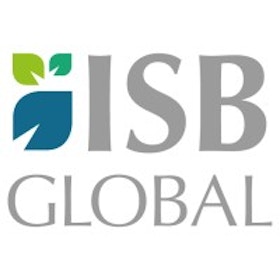Recycling is not enough by itself to solve the global plastic pollution crisis and governments, business and consumers themselves must change how they use and dispose of plastic, according to Chris Williams, founder and CEO of ISB Global, the UK-based software and solutions provider for the global waste management and recycling sector.
In a blog post, Williams responds to a recent report by Greenpeace warning that recycling alone is not the sole solution to the plastic pollution crisis. The report emphasises the urgent need for alternative approaches to tackle the problem.
“Recycling plays a vital role in waste management, but it’s nowhere near enough to solve the current global problem with plastic pollution,” said Williams. “We need to improve current recycling efforts, but also reduce our production and consumption of single-use plastic: and encourage far greater plastic reuse as well.
The Greenpeace report published in late May on the eve of a UN global plastic pollution summit in Paris attended by more than 170 countries. The summit aimed to agree a legally binding global treaty on plastic production and disposal. But it ended without agreement on a range of important details.
With the international community deadlocked, Williams points to three practical steps to curtail plastic pollution:
- Acknowledge the limitations of recycling: Recycling has long been championed as the primary solution to plastic pollution, but it has its limits. Recycling processes can inadvertently increase the toxicity of plastic, which poses risks to both the environment and human health.
New microplastic filtration systems are already being developed that remove microplastics from wastewater treatment plants and prevent them from entering waterways and ecosystems. The waste industry now needs to devise improved recycling methods that prioritise the elimination of harmful substances and produce safer materials as well.
- Reuse more plastic: Reusing plastic products extends their life cycle and significantly reduces the demand for new plastic. Durable, reusable and environmentally friendly products such as Yeti Bottles and Ocean Bottles reduce plastic waste and minimise the environmental impact.
Many countries and local authorities have already implemented plastic bottle deposit schemes and also promote the use of refillable containers. These initiatives reduce the number of discarded single-use plastic items by incentivising consumers to reuse bottles and containers instead.
- Reduce single-use plastic: It sounds obvious but tackling plastic pollution has to involve reducing the production and consumption of single-use plastic. Items like food wrappers, drink bottles, and plastic bags are major contributors to the problem. Food manufacturers and retailers need to step up their efforts to replace single-use items with innovative alternative packaging solutions made of biodegradable or compostable materials.
The food industry is making significant advances on this issue. At the end of May, Mars announced a UK trial of recyclable paper wrappers for its eponymous chocolate bar. Although challenges remain, progress in the area is promising.
Williams also underlines the long-term importance of establishing circular supply networks to replace current processes of production and consumption. “Implementing sustainable circular supply networks – that is, closed-loop systems where all resources are continuously reused and recycled – reduces waste and minimises the demand for new raw materials as well. This in turn mitigates the environmental impact of plastic production,” he explained.
“The circular supply network is a paradigm shift in how we manage all waste and resources, not just plastic. By implementing changes in manufacturing and materials used, waste transforms from being a problem to a valuable resource that can be reintroduced into the production cycle. Adopting a circular approach is a long-term solution to properly address the challenges posed by plastic pollution and other waste.”
Williams continued, “The Greenpeace report is a sobering reminder of the limitations of recycling as a solution to the plastic waste problem. With efforts on a shared international plan to end plastic pollution currently stalled, the responsibility falls to governments at a national and local level, together with business and the waste management industry, and consumers themselves.”
“What’s essential is to improve existing recycling processes and to also expand our focus beyond recycling. This means educating and encouraging consumers to reduce their single-use plastic consumption and increase their use of reusable products, and to push business and industry to adopt biodegradable plastic alternatives. It also means rethinking existing manufacturing processes so that waste materials are no longer a problem but a resource. Together, these strategies can address the current crisis and pave the way towards a cleaner, healthier and more sustainable future.”
About ISB Global
Founded in 1999, ISB Global designs and delivers innovative software that allows environmental, waste management and recycling businesses to automatically track, measure, report and analyse their waste and recyclable materials.
ISB Global’s flagship product is Waste and Recycling One (WR1), which enables businesses to plan, track and control their waste management and recycling operations via a single integrated software solution.
WR1 provides instant visibility of where materials are, how much businesses have in their inventory and what those materials are worth. Delivered through real-time analytics, reporting and insights on all aspects of the collection and material recycling operations, WR1 offer an insight into the future of how the world deals with waste and recyclable materials.
ISB Global is based in the UK with offices in the USA, Pakistan and South Africa. Visit https://www.isb-global.com/.
Publish your content with EB Publishing
It's about who you reach. Get your news, events, jobs and thought leadership seen by those who matter to you.











